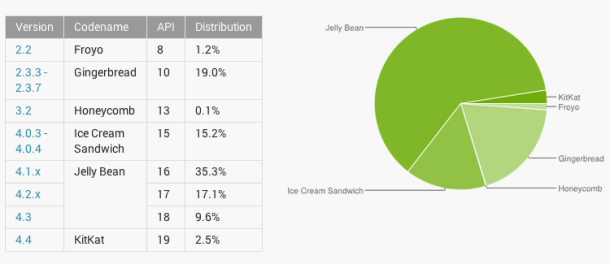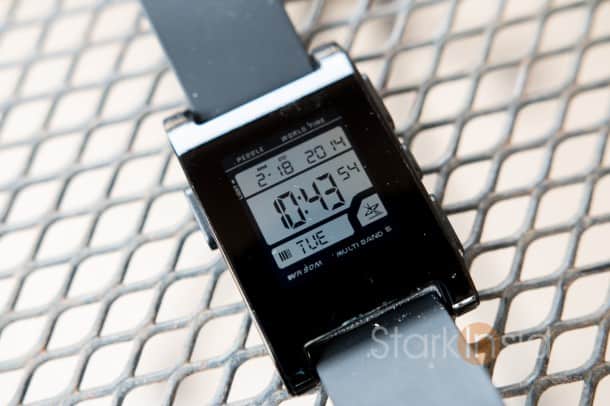No secret, I love my Pebble.
If you’ve followed some of my posts here on Stark Insider you’ll know that this skeptic did a complete one-eighty after spending a few weeks with the smartwatch. Call me a flip-flopper, there’s no way I’m going back to life before Pebble – getting alerts (especially Google Voice and Facebook messages, Twitter alerts) on my wrist means I can easily read them while driving, at the gym, or around the office, without having to locate my Nexus 5.
Plus, I’ve gone full-on nerd for all the–incredible, bizarre, silly, fun, inane, pointless, creative, retro–watchfaces found in the (quickly) growing Pebble App Store.
Those that own a Pebble probably already know that the new App store is available now for iOS, but is still in beta for Android. I’ve been running the beta on my Nexus 5 and Pebble (2.0) for a few weeks now. It’s been an interesting experience, with each beta release not necessarily resulting in a better experience than the previous one. With Android Beta11, though, things are starting to shape up.
For Pebble the lack of an Android app store can mean the difference between winning or losing a customer.”
Obviously the Pebble team chose to get iOS out the door first. The reasons why it chose to do so, however, are less clear. Maybe, based on market research, the Pebble team determined that the bulk of buyers were using iPhones. Or, and this is my theory, it was a close call. That the split between iOS and Android users was actually pretty close – after all, the Pebble is somewhat of a geek’s delight, and us early adopter, tech types tend to gravitate towards Android. If the data pointed to us Android enthusiasts as majority buyers I would not be surprised.
In a blog post on the Pebble web site, an employee says the reason why the 2.0 Pebble app for Android has lagged its iOS counterpart is purely a “matter of resources.”
Limited resources = tough decisions. With fewer than a hundred employees, Pebble had to prioritize. iOS was the winner.
I wonder if the pesky matter of Android fragmentation had anything to do with that?

In the post regarding the lagging Android update it’s noted that there are over 1000 Android devices on more than 27 different versions and “flavors” of Android 4.x. F-r-a-g-m-e-n-t-a-t-i-o-n anyone?
Imagine the testing challenge confronting a small team when you have that many combinations?
Fortunately the situation may be getting better for Google and Android. The latest stats show that 80% of devices are finally running some variation of Android 4. Interestingly, however, Google’s much ballyhooed Android 4.4 KitKat release (which I love on the blazing fast Nexus 5) is only running on 2.5% of devices. That would simply never happen at Apple. In fact, iOS 7, its latest release, is running on almost 75% of devices. That’s a massive difference in philosophy. It’s also indicative of an open-sourced based business model versus one that is vertically integrated and closed to OEMs.
This is clearly a developer challenge. I’m not convinced mainstream consumers, unlike early adopters such as myself (who will sideload apps, root phones, etc.), care what version of Android is running on their phone. Is the screen easy to read? Does it run apps smoothly? Is battery life decent? Great. $199, two years? Sign me up.
To them it’s the end experience and price that matter most.
But, for developers, as we’re seeing with Pebble, desperately trying to do all it can with limited resources to test its 2.0 platform against thousands upon thousands of combinations of devices and Android operating systems, it can be a real hurdle. And because of the ensuing delays (the iOS version of Pebble 2.0 has been out for a month as of this writing) ultimately consumers are impacted negatively.
For Pebble the lack of an Android app store can mean the difference between winning or losing a customer. Several other watches, like the quirky Qualcom Toq and nifty Sony Smartwatch 2, run on Android too. Granted they have a far less mature developer ecosystem – an edge which could serve Pebble well.
Is Android fragmentation real?
Yes.
Though I think it’s overall consequences are negatively hyped, the Pebble case demonstrates that it can pose real challenges for developers, and ultimately frustration for consumers.
Oh, and:
Long live Pebble!


